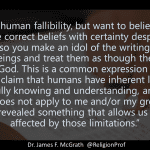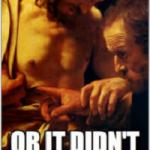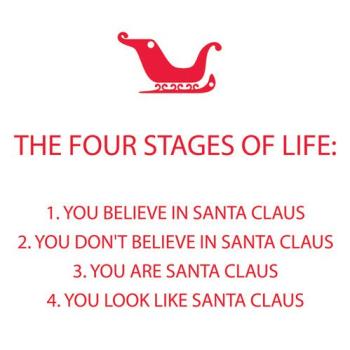In an amazing blog post on the Yale University Press blog, Agustin Fuentes writes:
We all believe. But we are not all religious.
Belief is an evolved capacity that incorporates our neurobiology, our behavior, our cultures, our histories, our individual development and experiences. This enables humans to live in the here and now, in the moment, in the material world, and to simultaneously know that there is much more to existence than what we can see, feel, and hear. Belief is the ability humans have to deploy our neurobiological, perceptual, and experiential systems to create realities, material and immaterial. It is not just about religion. It shapes and structures the way we see, interact, and create the world.
Beliefs emerge as we develop and experience the world and fuse the outcomes of these processes together with our imaginations and the influences of others. Through this process, humans are able to create mental representations and neural connections, developing ideas, concepts, understandings, that sear into the core of who we are.
Once we believe in something, our mind operates such that as information comes in, we perceive it in particular ways. This neurobiological, social, and psychological reality (the belief) literally shapes the pathways by which we see and experience the world. Our eyes and ears receive information connecting to our neurobiological and other bodily systems, where it is filtered, analyzed, and digested based on the templates, connections, and mental representations we hold: based on our beliefs. This process acts to channel and focus our attention, often in a manner reinforcing the beliefs we already have.
To believe is to truly fall deeply and madly in love with something such that it is part and parcel of our everyday interface with the world. This is where religion comes in.
For any religion to work, a human must be able to commit wholly, fully, deeply, and really to the precepts of the given faith tradition—we must be capable of being religious. The term “religious,” borrowing from Clifford Geertz, means the use of one’s capacity for belief in the context of becoming with particular perceptual, experiential, and agential practices, involving the transcendent, that act to establish powerful, persuasive, and long-lasting moods and motivations that may be but are not necessarily tied to specific formal doctrines, practices, texts, or institutions. This is different from “Religion,” borrowing from Emile Durkheim, which is the formal coalition of religious beliefs and practices (rituals) and the material symbols and structured institutions that unite them into a single community via specific theological doctrine and ritual. Therefore, all humans can be religious due to our capacity for belief, but millions of us might not use this capacity to become committed to a religion per se.
So, belief itself is a capacity, and it can play out in many more ways than being religious. Belief is central to the function of economies and national politics, to the social dynamics of community histories and social mores—all require certain patterns and contexts of belief as core to their function. For example, the green paper currency with images and writing on it that represents a USA $20 bill would be nothing but paper if we did not have a belief system underpinning it.
Belief structures the way in which we act, how we think the world should be, and for each of us, how it is.
When I say there are no non-believers among humans, I mean it. For humans, throughout our two-million-year evolutionary history, the capacity for belief developed in such a way that it became a central component of our adaptive toolkit. It is at the core to the construction of the human niche, the way our ancestors achieved success in the world, and the way we still do. Belief is a capacity that has enabled us to reach the amazing successes of the twenty-first century. Belief also enables us to achieve the incredible failures, the horrors of violence and destruction, we excel at here in the twenty-first century.
Click through to read the rest of it. As I read it, I wondered whether this isn’t just a restatement of Tillich’s way of viewing faith as ultimate concern. Even so, it is very well put.
In response to the recent declassification of UFO videos fellow Patheos blogger Fred Clark wrote:
Like Chris Carter, I can’t help but also think of theology when I think about UFOs. These are, after all, related questions about what truth is out there, and about whether or not we are alone. And they’re both fields that tend to be dominated by enthusiasts and true believers who can’t abide the necessary categories of “unidentified” or “unexplained.”
All of which is to say that I believe in UFOs, by which I mean that I acknowledge that we have seen things that we have not identified and cannot (yet) identify.
See too:
Searchers: The Ignored Demographic of Spiritual Seekers
Myth vs. Truth: Science and Stories
We learn more by trusting than not trusting













